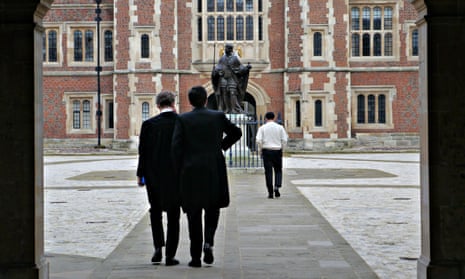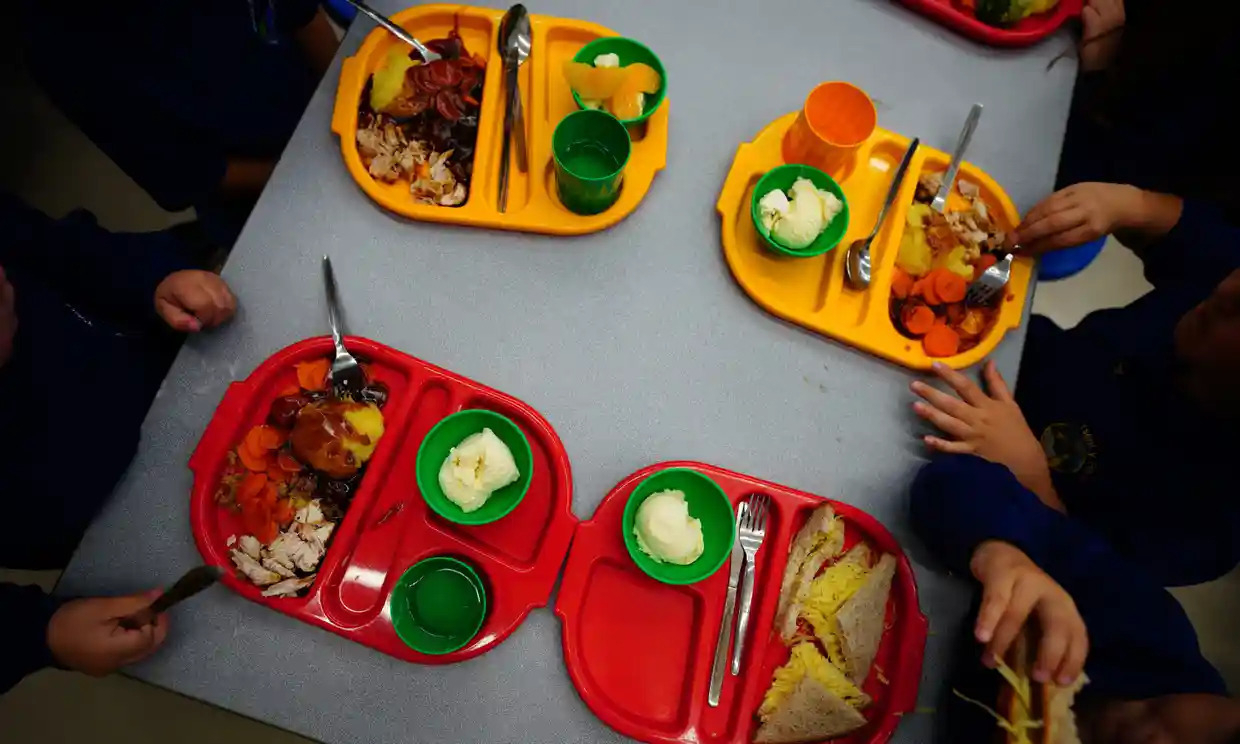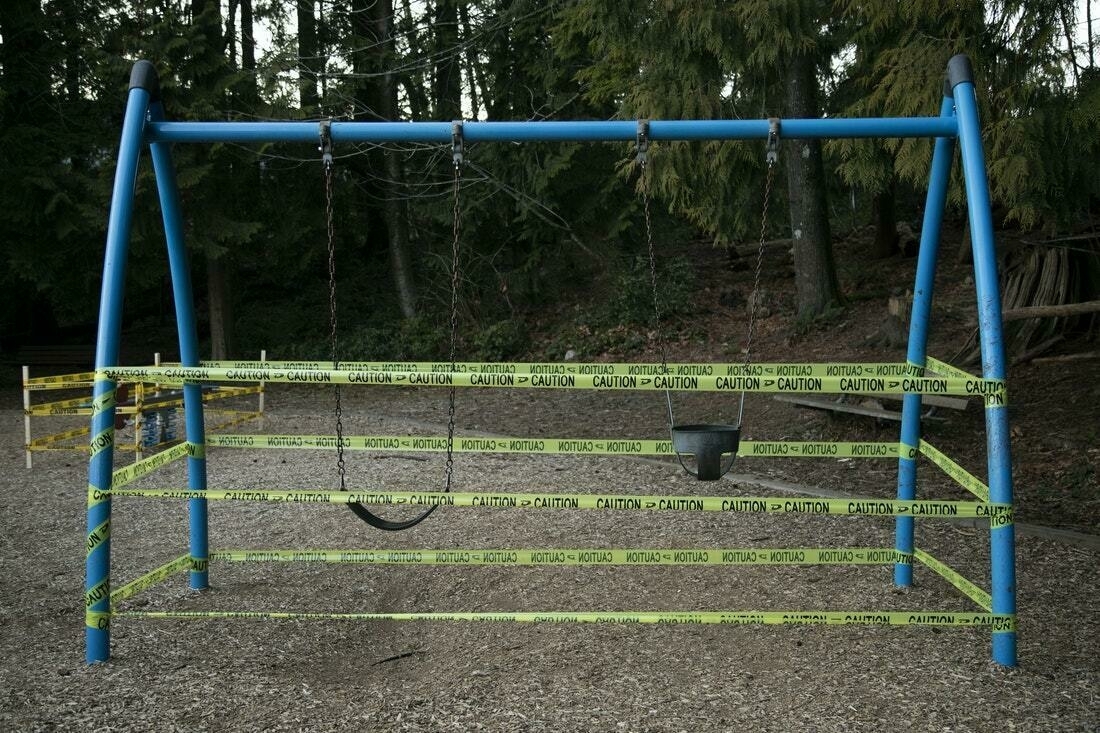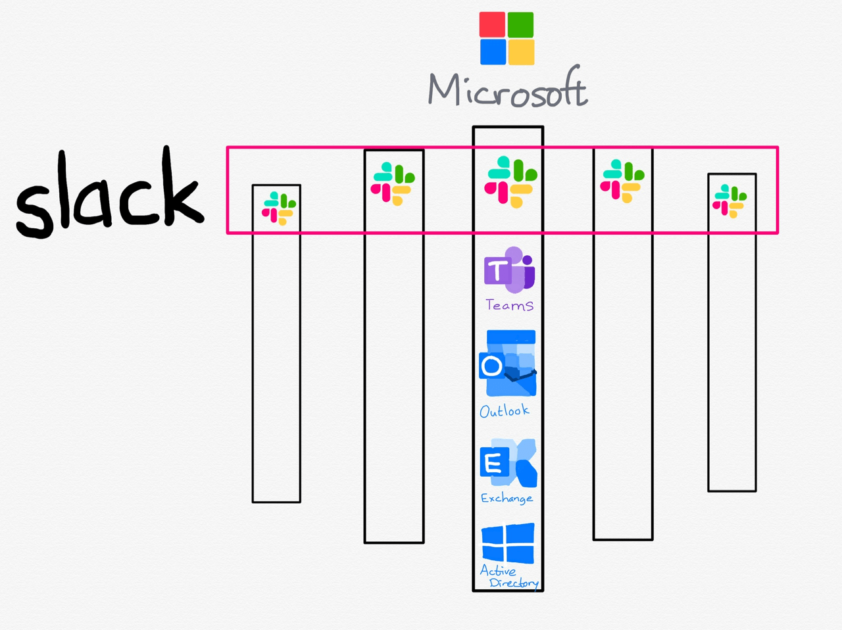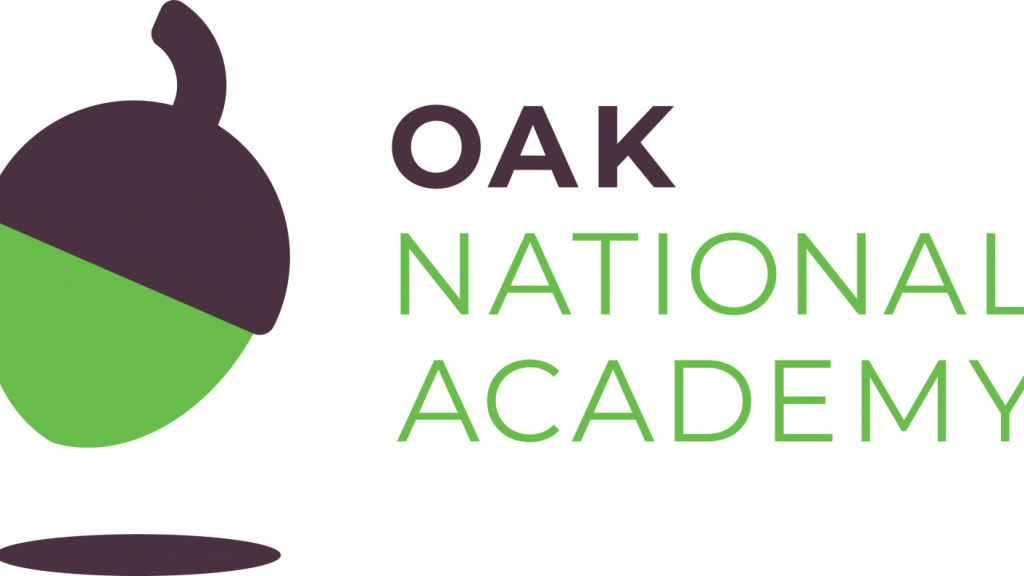- “Things that were considered worthless are redeemed” (Ira David Socol) — "Empathy plus Making must be what education right now is about. We are at both a point of learning crisis and a point of moral crisis. We see today what happens — in the US, in the UK, in Brasil — when empathy is lost — and it is a frightening sight. We see today what happens — in graduates from our schools who do not know how to navigate their world — when the learning in our schools is irrelevant in content and/or delivery."
- Voice assistants are going to make our work lives better—and noisier (Quartz) — "Active noise cancellation and AI-powered sound settings could help to tackle these issues head on (or ear on). As the AI in noise cancellation headphones becomes better and better, we’ll potentially be able to enhance additional layers of desirable audio, while blocking out sounds that distract. Audio will adapt contextually, and we’ll be empowered to fully manage and control our soundscapes.
- We Aren’t Here to Learn What We Already Know (LA Review of Books) — "A good question, in short, is an honest question, one that, like good theory, dances on the edge of what is knowable, what it is possible to speculate on, what is available to our immediate grasp of what we are reading, or what it is possible to say. A good question, that is, like good theory, might be quite unlovely to read, particularly in its earliest iterations. And sometimes it fails or has to be abandoned."
- The runner who makes elaborate artwork with his feet and a map (The Guardian) — "The tracking process is high-tech, but the whole thing starts with just a pen and paper. “When I was a kid everyone thought I’d be an artist when I grew up – I was always drawing things,” he said. He was a particular fan of the Etch-a-Sketch, which has something in common with his current work: both require creating images in an unbroken line."
- What I Do When it Feels Like My Work Isn’t Good Enough (James Clear) — "Release the desire to define yourself as good or bad. Release the attachment to any individual outcome. If you haven't reached a particular point yet, there is no need to judge yourself because of it. You can't make time go faster and you can't change the number of repetitions you have put in before today. The only thing you can control is the next repetition."
- Online porn and our kids: It’s time for an uncomfortable conversation (The Irish Times) — "Now when we talk about sex, we need to talk about porn, respect, consent, sexuality, body image and boundaries. We don’t need to terrify them into believing watching porn will ruin their lives, destroy their relationships and warp their libidos, maybe, but we do need to talk about it."
- Drones will fly for days with new photovoltaic engine (Tech Xplore) — "[T]his finding builds on work... published in 2011, which found that the key to boosting solar cell efficiency was not by absorbing more photons (light) but emitting them. By adding a highly reflective mirror on the back of a photovoltaic cell, they broke efficiency records at the time and have continued to do so with subsequent research.
- Twitter won’t ruin the world. But constraining democracy would (The Guardian) — "The problems of Twitter mobs and fake news are real. As are the issues raised by populism and anti-migrant hostility. But neither in technology nor in society will we solve any problem by beginning with the thought: “Oh no, we put power into the hands of people.” Retweeting won’t ruin the world. Constraining democracy may well do.
- The Encryption Debate Is Over - Dead At The Hands Of Facebook (Forbes) — "Facebook’s model entirely bypasses the encryption debate by globalizing the current practice of compromising devices by building those encryption bypasses directly into the communications clients themselves and deploying what amounts to machine-based wiretaps to billions of users at once."
- Living in surplus (Seth Godin) — "When you live in surplus, you can choose to produce because of generosity and wonder, not because you’re drowning."
- What do cats do all day? (The Kid Should See This) — "Catcam footage from collar cameras captured the activities of 16 free-roaming domestic cats in England as they explored, stared, touched noses, hunted, vocalized, and more."
- These researchers invented an entirely new way of building with wood (Fast Company) — "Each of the 12 wooden components of the tower was made by laminating two pieces of wood with different levels of moisture. Then, when the laminated pieces of wood dried out, the piece of wood curved naturally–no molds or braces needed."
- What Did Old English Sound Like? Hear Reconstructions of Beowulf, The Bible, and Casual Conversations (Open Culture) — "Over the course of 1000 years, the language came together from extensive contact with Anglo-Norman, a dialect of French; then became heavily Latinized and full of Greek roots and endings; then absorbed words from Arabic, Spanish, and dozens of other languages, and with them, arguably, absorbed concepts and pictures of the world that cannot be separated from the language itself."
- Adversarial interoperability: reviving an elegant weapon from a more civilized age to slay today's monopolies (BoingBoing) — "This kind of adversarial interoperability goes beyond the sort of thing envisioned by "data portability," which usually refers to tools that allow users to make a one-off export of all their data, which they can take with them to rival services. Data portability is important, but it is no substitute for the ability to have ongoing access to a service that you're in the process of migrating away from."
- Fables of School Reform (The Baffler) — "Even pre-internet efforts to upgrade the technological prowess of American schools came swathed in the quasi-millennial promise of complete school transformation."
Let's make private schools help pay for state schools
I’m delighted to hear about this and I hope the vote passes. It’s a farce that place of privilege should gain tax breaks and have ‘charitable status’. As I’ve said many times before, opting out of state education and the NHS should be, either impossible or ridiculously expensive.
Labour will attempt to force a binding vote on ending private schools’ tax breaks and use the £1.7bn a year raised from this to drive new teacher recruitment.Source: Labour look to force vote on ending private schools’ tax breaks | The GuardianThe motion submitted by Keir Starmer’s party for the opposition day debate on Wednesday is drafted to push the charitable status scheme that many private schools enjoy to be investigated, as the party attempts to shift the political focus on to education.
[…]
Labour will hope the motion will force the government to make its MPs vote down an issue, rather than ignoring the process. A Labour source has previously said: “Conservative MPs voting against our motion are voting against higher standards in state schools for the majority of children in our country.”
Brexit Britain = hungry kids
As a former teacher, I almost cried reading this. Can someone with some authority and leadership stand up and say not only was Brexit a terrible idea, but the current government’s fiscal “strategy” will absolutely break this country?
Children are so hungry that they are eating rubbers or hiding in the playground because they can’t afford lunch, according to reports from headteachers across England.Source: Schools in England warn of crisis of ‘heartbreaking’ rise in hungry children | The Guardian[…]
One school in Lewisham, south-east London, told the charity about a child who was “pretending to eat out of an empty lunchbox” because they did not qualify for free school meals and did not want their friends to know there was no food at home.
Community food aid groups also told the Observer this week that they are struggling to cope with new demand from families unable to feed their children. “We are hearing about kids who are so hungry they are eating rubbers in school,” said Naomi Duncan, chief executive of Chefs in Schools. “Kids are coming in having not eaten anything since lunch the day before. The government has to do something.”
Kids need life on the highest volume
This article is based on the author’s experiences as a teacher in state schools in the US. I should imagine the situation is exacerbated there, but it can’t be that great elsewhere, either.
My own kids seem like they’re OK. Our youngest, whose had Covid like me this week, has gone back to remote learning, which she enjoys as she completes her work quickly and then does other things. I think it’s particularly hard on teenagers, like our eldest, who are preparing for important exams.
The data about learning loss and the mental health crisis is devastating. Overlooked has been the deep shame young people feel: Our students were taught to think of their schools as hubs for infection and themselves as vectors of disease. This has fundamentally altered their understanding of themselves.Source: I’m a Public School Teacher. The Kids Aren’t Alright. | Common SenseWhen we finally got back into the classroom in September 2020, I was optimistic, even as we would go remote for weeks, sometimes months, whenever case numbers would rise. But things never returned to normal.
When we were physically in school, it felt like there was no longer life in the building. Maybe it was the masks that made it so no one wanted to engage in lessons, or even talk about how they spent their weekend. But it felt cold and soulless. My students weren’t allowed to gather in the halls or chat between classes. They still aren’t. Sporting events, clubs and graduation were all cancelled. These may sound like small things, but these losses were a huge deal to the students. These are rites of passages that can’t be made up.
[…]
They are anxious and depressed. Previously outgoing students are now terrified at the prospect of being singled out to stand in front of the class and speak. And many of my students seem to have found comfort behind their masks. They feel exposed when their peers can see their whole face.
[…]
At the beginning of the pandemic, adults shamed kids for wanting to play at the park or hang out with their friends. We kept hearing, “They’ll be fine. They’re resilient.” It’s true that humans, by nature, are very resilient. But they also break. And my students are breaking. Some have already broken.
When we look at the Covid-19 pandemic through the lens of history, I believe it will be clear that we betrayed our children. The risks of this pandemic were never to them, but they were forced to carry the burden of it. It’s enough. It’s time for a return to normal life and put an end to the bureaucratic policies that aren’t making society safer, but are sacrificing our children’s mental, emotional, and physical health.
Our children need life on the highest volume. And they need it now.
Reducing exam stress by removing pointless exams
In the UK, it used to be the case that children could leave school at 16. This was the reason for 'O' levels (which my parents took), and GCSEs, which I sat at that age.
However, these days, young people must remain in education or training until they are 18 years old. What, then, is the point of taking exams aged 16 and 18?
A group of Tory MPs has written a report, with one of the authors, Flick Drummond, making some good points:
The paper argues that preparation for GCSE exams means that pupils miss a large chunk of valuable learning because of the time taken up with mock exams and revision, followed by the exams themselves. “That’s almost six months out of a whole year spent preparing for exams,” said Drummond.
She said she was particularly concerned by the impact of exams on mental health, citing a report backed by the Children’s Society in August that ranked England 36th out of 45 countries in Europe and North America for wellbeing.Richard Adams, Tory MPs back ditching GCSE exams in English school system overhaul (The Guardian)
Instead, the new report says, the exams should be replaced by a baccalaureate, which would cover several years’ study and would allow children more time from the age of 15 to settle on the subjects they wanted to study in the sixth form for A-levels or vocational qualifications such as T-levels and apprenticeships, and to explore potential careers in a structured way.
As a parent of children who could be affected by this, I actually think this should be trialled first in the private sector and then rolled out in the state sector. Too often, the private sector benefits from treating state school pupils as guinea pigs, and then cherry-picking what works.
Saturday sandcastles
The photos of brutalist sandcastles accompanying this week's link roundup made me both smile and really miss care-free walks on the beach. Although technically we're still allowed to visit the coast, our local council has closed nearby car parks.
This week I've been busy, busy, but managed to squeeze in a bit of non-fiction reading, the best of which I'm sharing below. Oh, and one link that I can' really quote is UnblockIt which was shared via our team chat this week. If your ISP filters certain sites, you might want to bookmark it...
There will be no 'back to normal'
In this article, we summarise and synthesise various - often opposing - views about how the world might change. Clearly, these are speculative; no-one knows what the future will look like. But we do know that crises invariably prompt deep and unexpected shifts, so that those anticipating a return to pre-pandemic normality may be shocked to find that many of the previous systems, structures, norms and jobs have disappeared and will not return.
Nesta
I'm going to return to this article time and again, as it breaks down in a really helpful way what's likely to happen post-pandemic in the following areas: political, economic, sociocultural, technological, legal, and environmental.
Plan for 5 years of lockdown
I’m attempting to be pragmatic. I think this is one of those times where we should hope for the best but plan for the worst. Crucially, I think that a terrifying number of people are in denial about the timescales of disruption that Covid-19 will cause, and this is causing them to make horrible personal and professional decisions. I believe that we have a responsibility to consider any reasonably likely worst case scenario, and take appropriate steps to mitigate it. But to do that we have to be honest about the worst case.
Patrick Gleeson
It's hard to disagree with the points made in this post, especially as the scenario planning that universities are doing seems to point in the same direction. Having said that, I don't think 'lockdown' will mean the same thing everywhere and at each stage of the pandemic.
'Will coronavirus change our attitudes to death? Quite the opposite'
For centuries, people used religion as a defence mechanism, believing that they would exist for ever in the afterlife. Now people sometimes switch to using science as an alternative defence mechanism, believing that doctors will always save them, and that they will live for ever in their apartment. We need a balanced approach here. We should trust science to deal with epidemics, but we should still shoulder the burden of dealing with our individual mortality and transience.
The present crisis might indeed make many individuals more aware of the impermanent nature of human life and human achievements. Nevertheless, our modern civilisation as a whole will most probably go in the opposite direction. Reminded of its fragility, it will react by building stronger defences. When the present crisis is over, I don’t expect we will see a significant increase in the budgets of philosophy departments. But I bet we will see a massive increase in the budgets of medical schools and healthcare systems.
Yuval Noah Harari
Some amazing writing, as ever, by Harari, who argues that, because our secular societies focus on the here and now rather than the afterlife, science has almost become a religion.

A startup debt to talk about more: emotional debt
We incur emotional debt whenever there’s an experience we’ve had, but not fully digested in all aspects of it. In my trauma therapy training I learned that this is in fact a natural and important human survival skill. Imagine you’re living in a pre-historic village and it gets raided by a neighboring tribe. Although no one gets killed, a number of houses have been burned down and food has been stolen. The next morning the most important tasks for everyone are to protect the village again, rebuild the houses and hunt for food to survive. Many of the villagers will have been deeply traumatized from the fears and terror they experienced in their bodies. Since food and shelter takes first priority to humans, not processing these emotions for now is a debt that’s necessary and important to incur. We can put it aside and leave it stuck in our bodies, ready to reengage and digest it later. It’s a great survival feature if you will.
A couple of weeks later when everything has been rebuilt, there might be a chance for the local shaman to offer a ritual around the fireplace where everyone can gather and re-experience the emotions that were too difficult to deal with at the actual event of the raid: the rage and anger towards the attackers, the fear and the terror over their lives and eventually the grief for the loss of their goods and most importantly their safety. Once that has been felt and integrated, everyone is able to move on and the night of the village raid can safely go into the history books, fairy tales and heroes journey accounts that luckily everyone survived, yet learned from.
Leo Widrich
While this is framed in terms of startups, I think every organisation has 'emotional debt' that they have to deal with. I like this framing, and will be using it from now on to explain why teams need times of compression and decompression (instead of never-ending 'sprints').
Don’t let remote leadership bring out the worst in you
Recognize that the pressure you apply is a reaction to a construct of control. You think you can control people – and things – and the reality is you can’t. The quicker you can realize this, the sooner you can shift to a frame of mind where you can focus constructively on the things that actually help your team, such as: (1) Making it clear why the work matters (2) Creating milestones to help that person achieve that work (3) Giving as much context as possible so they can make the best decisions (4) Helping them think through tough problems they encounter.
Claire Lew
I've led a remote team for a couple of years now, and worked remotely for six years before that. Despite this, it's easy to fall into bad habits, so this is a useful article to remind all leaders (most of whom are remote now!) that the amount of time someone spends on something does not equate to progress made.
Google Apple Contact Tracing (GACT): a wolf in sheep’s clothes.
But the bigger picture is this: it creates a platform for contact tracing that works all across the globe for most modern smart phones (Android Marshmallow and up, and iOS 13 capable devices) across both OS platforms. Unless appropriate safeguards are in place (including, but not limited to, the design of the system as described above – we will discuss this more below) this would create a global mass-surveillance system that would reliably track who has been in contact with whom, at what time and for how long. (And where, if GPS is used to record the location.) GACT works much more reliably and extensively than any other system based on either GPS or mobile phone location data (based on cell towers) would be able to (under normal conditions). I want to stress this point because some people have responded to this threat saying that this is something companies like Google (using their GPS and WiFi names based location history tool) can already do for years. This is not the case. This type of contact tracing really brings it to another level.
Jaap-Henk Hoepman
This, by a professor in the Netherlands who focuses on 'privacy by design' is why I'm really concerned about the Google/Apple Contact Tracing (GACT) programme. It's only likely to be of marginal help in fighting the virus, but sets up a global surveillance network for decades to come.

In this Zombie Apocalypse, your Homework is due at 5pm
Year in and year out, when school’s in, children know that they are to be at certain places at certain times, doing particular tasks in particular ways. And now, weeks loom ahead where they are faced with many of the same tasks, absent of all the pomp and circumstance. This is the ultimate zombie apocalypse nightmare—a pandemic has hit the world with a mighty force, schools and tuition centers are shut, and homework is still due. Children are adaptable creatures, but it will be challenging for many, if not most, to do all that they are expected to do under these altered conditions.
Youyenn Teo
I was attracted to this article by its great title, but it's actually an interesting insight into both education in a Singaporean context and the gendered nature of care in our societies.
Free Money for Surfers: A Genealogy of the Idea of Universal Basic Income
As cash transfers are increasingly seen as the ideal way to confront the magnitude of the coronavirus threat, it is unclear whether our political imagination is truly up to the task. The current crisis might accelerate rather than decrease our dependency on the market, strengthening capital’s grip on society. Large-scale public works are evidently unfeasible with physical distancing. But, with a clear medical equipment shortage and lacking trained personnel, there is obvious space for public planning responses, and “production for use value” seems ever more necessary. None of these ills will be solved by cash transfers.
Anton Jäger & Daniel Zamora
This, in the Los Angeles Review of Books, considers a new work by Peter Sloman entitled The Idea of a Guaranteed Income and the Politics of Redistribution in Modern Britain. Having previously been cautiously optimistic about Universal Basic Income (or 'cash transfers') I'm not so sure it would all work out so well. I'd rather we funded things like the NHS, but then that might be my white male privilege speaking.
How we made the Keep Calm and Carry On poster
I first found the poster in 2000, folded up at the bottom of a box of books we had bought at an auction. I liked it straight away and showed it to my wife Mary – she had it framed and put up in the shop. The next thing we found was that customers wanted to buy it. I suggested we make copies but Mary said: “No, it’ll spoil the purity.” She went away for a week’s holiday, so I secretly got 500 copies made.
Stuart Manley (interviewed by malcolm jack)
This ridiculously-famous poster was discovered in a wonderful second-hand bookshop not too far away from us, and which we visit several times per year. I love the story behind it.
Images via The Guardian: For one tide only: modernist sandcastles – in pictures
To others we are not ourselves but a performer in their lives cast for a part we do not even know that we are playing
Surveillance, technology, and society
Last week, the London Metropolitan Police ('the Met') proudly announced that they've begun using 'LFR', which is their neutral-sounding acronym for something incredibly invasive to the privacy of everyday people in Britain's capital: Live Facial Recognition.
It's obvious that the Met expect some pushback here:
The Met will begin operationally deploying LFR at locations where intelligence suggests we are most likely to locate serious offenders. Each deployment will have a bespoke ‘watch list’, made up of images of wanted individuals, predominantly those wanted for serious and violent offences.
At a deployment, cameras will be focused on a small, targeted area to scan passers-by. The cameras will be clearly signposted and officers deployed to the operation will hand out leaflets about the activity. The technology, which is a standalone system, is not linked to any other imaging system, such as CCTV, body worn video or ANPR.
London Metropolitan Police
Note the talk of 'intelligence' and 'bespoke watch lists', as well as promises that LFR will not be linked any other systems. (ANPR, for those not familiar with it, is 'Automatic Number Plate Recognition'.) This, of course, is the thin end of the wedge and how these things start — in a 'targeted' way. They're expanded later, often when the fuss has died down.
Meanwhile, a lot of controversy surrounds an app called Clearview AI which scrapes publicly-available data (e.g. Twitter or YouTube profiles) and applies facial recognition algorithms. It's already in use by law enforcement in the USA.
The size of the Clearview database dwarfs others in use by law enforcement. The FBI's own database, which taps passport and driver's license photos, is one of the largest, with over 641 million images of US citizens.
The Clearview app isn't available to the public, but the Times says police officers and Clearview investors think it will be in the future.
The startup said in a statement Tuesday that its "technology is intended only for use by law enforcement and security personnel. It is not intended for use by the general public."
Edward Moyer (CNET)
So there we are again, the technology is 'intended' for one purpose, but the general feeling is that it will leak out into others. Imagine the situation if anyone could identify almost anyone on the planet simply by pointing their smartphone at them for a few seconds?
This is a huge issue, and one that politicians and lawmakers on both sides of the Atlantic are both ill-equipped to deal with and particularly concerned about. As the BBC reports, the European Commission is considering a five-year ban on facial recognition in public spaces while it figures out how to regulate the technology:
The Commission set out its plans in an 18-page document, suggesting that new rules will be introduced to bolster existing regulation surrounding privacy and data rights.
It proposed imposing obligations on both developers and users of artificial intelligence, and urged EU countries to create an authority to monitor the new rules.
During the ban, which would last between three and five years, "a sound methodology for assessing the impacts of this technology and possible risk management measures could be identified and developed".
BBC News
I can't see the genie going back in this particular bottle and, as Ian Welsh puts it, this is the end of public anonymity. He gives the examples of the potential for all kinds of abuse, from an increase in rape, to abuse by corporations, to an increase in parental surveillance of children.
The larger issue is this: people who are constantly under surveillance become super conformers out of defense. Without true private time, the public persona and the private personality tend to collapse together. You need a backstage — by yourself and with a small group of friends to become yourself. You need anonymity.
When everything you do is open to criticism by everyone, you will become timid and conforming.
When governments, corporations, schools and parents know everything, they will try to control everything. This often won’t be for your benefit.
Ian Welsh
We already know that self-censorship is the worst kind of censorship, and live facial recognition means we're going to have to do a whole lot more of it in the near future.
So what can we do about it? Welsh thinks that this technology should be made illegal, which is one option. However, you can't un-invent technologies. So live facial recognition is going to be used (lawfully) by some organisations, even if it were restricted to state operatives. I'm not sure if that's better or worse than everyone having it?
At a recent workshop I ran, I was talking during one of the breaks to one person who couldn't really see the problem I had raised about surveillance capitalism. I have to wonder if they would have a problem with live facial recognition? From our conversation, I'd suspect not.
Remember that facial recognition is not 100% accurate and (realistically) never can be. So there will be false positives. Let's say your face ends up on a 'watch list' or a 'bad actor' database shared with many different agencies and retailers. All of a sudden, you've got yourself a very big problem.
As BuzzFeed News reports, around half of US retailers are either using live facial recognition, or have plans to use it. At the moment, companies like FaceFirst do not facilitate the sharing of data across their clients, but you can see what's coming next:
[Peter Trepp, CEO of FaceFirst] said the database is not shared with other retailers or with FaceFirst directly. All retailers have their own policies, but Trepp said often stores will offer not to press charges against apprehended shoplifters if they agree to opt into the store’s shoplifter database. The files containing the images and identities of people on “the bad guy list” are encrypted and only accessible to retailers using their own systems, he said.
FaceFirst automatically purges visitor data that does not match information in a criminal database every 14 days, which is the company’s minimum recommendation for auto-purging data. It’s up to the retailer if apprehended shoplifters or people previously on the list can later opt out of the database.
Leticia Miranda (BuzzFeed News)
There is no opt-in, no consent sought or gathered by retailers. This is a perfect example of technology being light years ahead of lawmaking.
This is all well-and-good in situations where adults are going into public spaces, but what about schools, where children are often only one step above prisoners in terms of the rights they enjoy?
Recode reports that, in schools, the surveillance threat to students goes beyond facial recognition. So long as authorities know generally what a student looks like, they can track them everywhere they go:
Appearance Search can find people based on their age, gender, clothing, and facial characteristics, and it scans through videos like facial recognition tech — though the company that makes it, Avigilon, says it doesn’t technically count as a full-fledged facial recognition tool
Even so, privacy experts told Recode that, for students, the distinction doesn’t necessarily matter. Appearance Search allows school administrators to review where a person has traveled throughout campus — anywhere there’s a camera — using data the system collects about that person’s clothing, shape, size, and potentially their facial characteristics, among other factors. It also allows security officials to search through camera feeds using certain physical descriptions, like a person’s age, gender, and hair color. So while the tool can’t say who the person is, it can find where else they’ve likely been.
Rebecca Heilweil (Recode)
This is a good example of the boundaries of technology that may-or-may-not be banned at some point in the future. The makers of Appearance Search, Avigilon, claim that it's not facial recognition technology because the images it captures and analyses are tied to the identity of a particular person:
Avigilon’s surveillance tool exists in a gray area: Even privacy experts are conflicted over whether or not it would be accurate to call the system facial recognition. After looking at publicly available content about Avigilon, Leong said it would be fairer to call the system an advanced form of characterization, meaning that the system is making judgments about the attributes of that person, like what they’re wearing or their hair, but it’s not actually claiming to know their identity.
Rebecca Heilweil (Recode)
You can give as many examples of the technology being used for good as you want — there's one in this article about how the system helped discover a girl was being bullied, for example — but it's still intrusive surveillance. There are other ways of getting to the same outcome.
We do not live in a world of certainty. We live in a world where things are ambiguous, unsure, and sometimes a little dangerous. While we should seek to protect one another, and especially those who are most vulnerable in society, we should think about the harm we're doing by forcing people to live the totality of their lives in public.
What does that do to our conceptions of self? To creativity? To activism? Live facial recognition technology, as well as those technologies that exist in a grey area around it, is the hot-button issue of the 2020s.
Image by Kirill Sharkovski. Quotation-as-title by Elizabeth Bibesco.
Friday fizzles
I head off on holiday tomorrow! Before I go, check out these highlights from this week's reading and research:
Image from Dilbert. Shared to make the (hopefully self-evident) counterpoint that not everything of value has an economic value. There's more to life than accumulation.
Friday feastings
These are things I came across that piqued my attention:
Individual steps to tackle climate change
Tomorrow, pupils at some schools in the UK will walk out and join protests around climate change. There are none in my local area of which I’m aware, but it has got me thinking of how I talk to my own children about this.
The above infographic was created by Seth Wynes and Kimberly Nicholas and is featured in an article about the most effective steps you can take as an individual to tackle climate change.
While these are all important steps (I honestly didn’t know quite how bad transatlantic flights are!) it’s important to bear in mind that industry and big business should bear the brunt here. What they can do dwarfs what we can do individually.
Still, it all counts. And we should get on it. Time’s running out.
Source: phys.org
Can you measure social and emotional skills?
Ben Williamson shines a light on the organisation behind the PISA testing regime moving into the realm of social and emotional skills:
The OECD itself has adopted ‘social and emotional skills,’ or ‘socio-emotional skills,’ in its own publications and projects. This choice is not just a minor issue of nomenclature. It also references how the OECD has established itself as an authoritative global organization focused specifically on cross-cutting, learnable skills and competencies with international, cross-cultural applicability and measurability rather than on country-specific subject achievement or locally-grounded policy agendas.
I really can’t stand this kind of stuff. Using proxies for the thing instead of trying to engender a more holistic form of education. It’s reductionist and instrumentalist.
This project exemplifies a form of stealth assessment whereby students are being assessed on criteria they know nothing about, and which rely on micro-analytics of their gestures across interfaces and keyboards. It appears likely that SSES, too, will involve correlating such process metadata with the OECD’s own SELS constructs to produce stealth assessments for quantifying student skills.
If you create data, people will use that data to judge students and rank them. Of course they will.
However, over time SSES could experience function creep. PISA testing has itself evolved considerably and gradually been taken up in more and more countries over different iterations of the test. The new PISA-based Test for Schools was produced in response to demand from schools. Organizations like CASEL are already lobbying hard for social-emotional learning to be used as an accountability measure in US education—and has produced a State-Scan Scorecard to assess each of the 50 states on SEL goals and standards. Even if the OECD resists ranking and comparing countries by SELS, national governments and the media are likely to interpret the data comparatively anyway.
This is not a positive development.
Source: Code Acts in Education
Put a number next to someone's name and there will be pressure for it to increase
In her review of Daniel Koretz’s new book on testing in schools, Diane Ravitch reminds us of Campbell’s law:
In 1979, the psychologist Donald Campbell proposed an axiom. “The more any quantitative social indicator is used for social decision-making,” he wrote, “the more subject it will be to corruption pressures and the more apt it will be to distort and corrupt the social processes it is intended to monitor.”Ravitch applies this to high-stakes testing in school, using a story from Soviet Russia to bring the point home:
The classic (and probably apocryphal) illustrations of Campbell’s law come from the Soviet Union. When workers were told that they must produce as many nails as possible, they produced vast quantities of tiny and useless nails. When told they would be evaluated by the weight of the nails, they produced enormous and useless nails. The lesson of Campbell’s law: Do not attach high stakes to evaluations, or both the measure and the outcome will become fraudulent.High stakes testing in schools is pernicious, Ravitch writes:
The children from elite homes are convinced by their test scores that they deserve their high status; their scores demonstrate their superiority. And children of the poor learn early on that they rank poorly; their test scores confirm their lowly status.Source: New Republic
